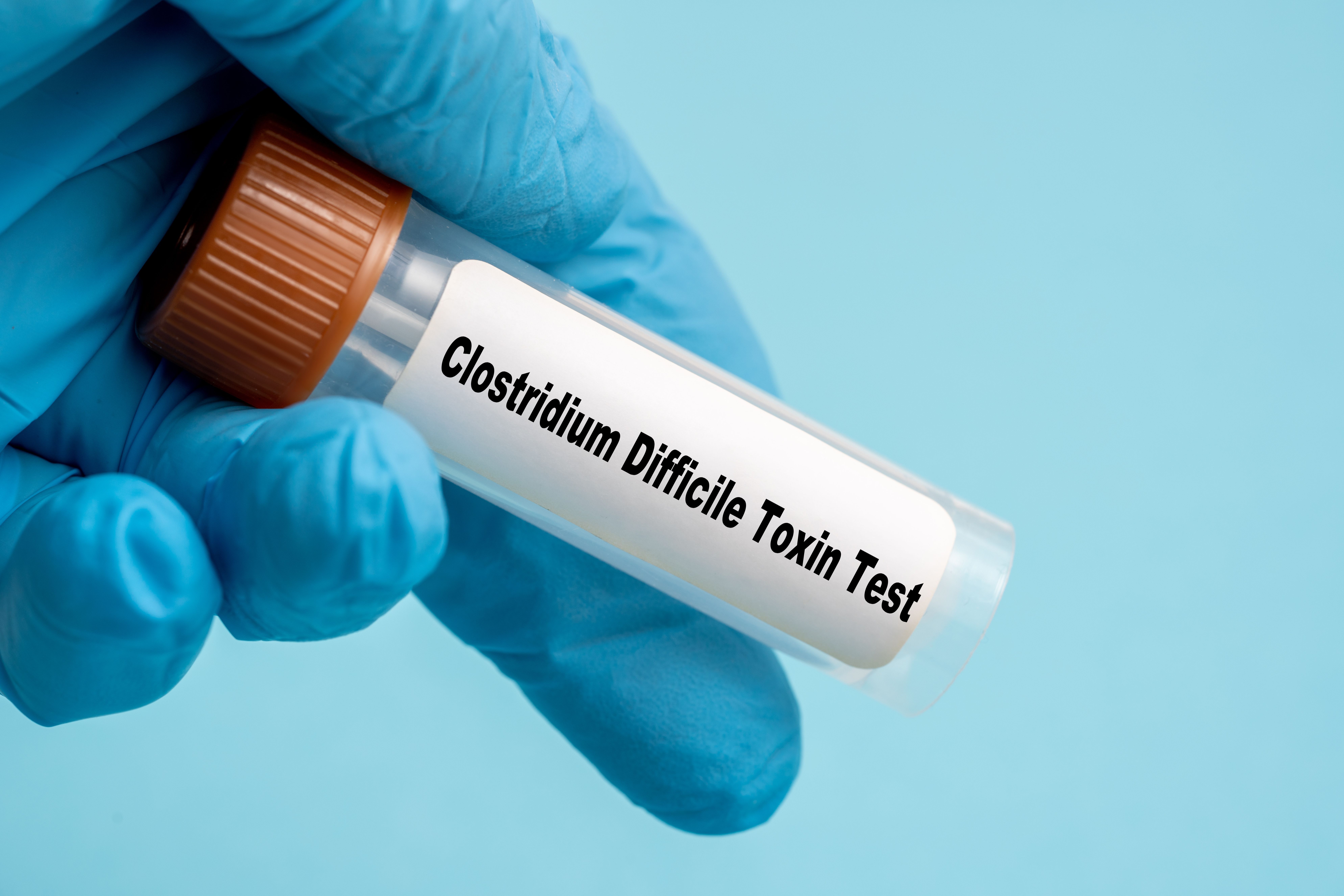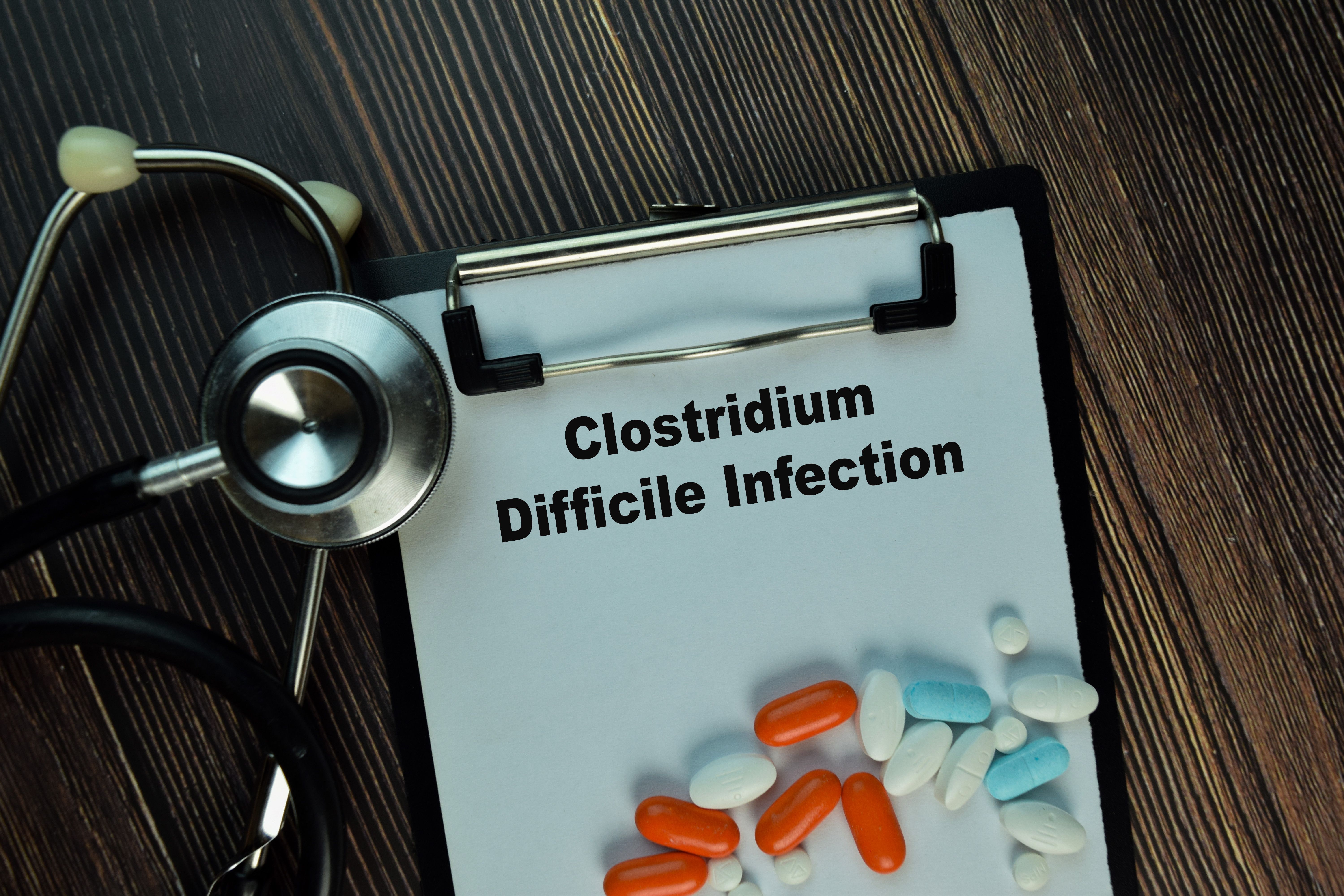
C. difficile
Latest News
Latest Videos

CME Content
More News

Not only are pharmacists easily accessible to the public, they are also highly visible as a source for travel immunization services.

Similarities between the symptoms of Clostridioides difficile infection and Crohn disease may cause confusion for health care providers.

The main cause of C. diff infection remains antibiotic use and overuse.

Spherix Global Insights estimates that SER-109 (Seres Therapeutics; Aimmune) will be able to challenge fecal microbiota, live-jslm in C. difficile treatment.

Clostridioides difficile infection can have a significant impact on feelings of depression and anxiety, while worsening quality of life.
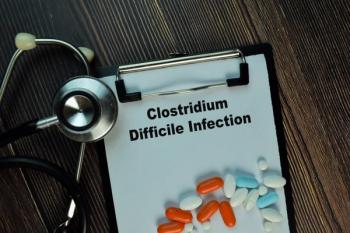
Including probiotics and antibiotics, such as fidaxomicin and vancomycin, could help prevent CDI, but more research is needed to evaluate them, investigators say.

Fecal Microbiota Transplant Found Cost-Effective in Patients With Refractory, Recurrent Clostridioides Difficile Infection
Although antibiotics are an effective treatment option, evidence indicates that fecal microbiota transplant holds promise in treating refractory or recurrent C difficile infections.
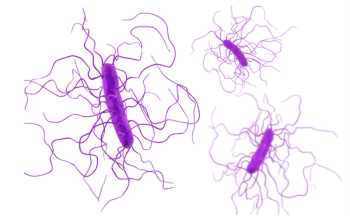
Extended Infusion of Piperacillin/Tazobactam Found to Lower Mortality, Incidence of C. Difficile Infection
Extended infusion piperacillin/tazobactam was associated with lower odds of 14-day mortality compared to standard infusion piperacillin/tazobactam.

Although investigative team is predominantly investigating Priscilicidin for topical applications, they are not ruling out potential oral applications.

New guidance provides recommendations on infection prevention strategies, performance measures, and how to implement these approaches.

Study findings mark the first evidence of improved health-related quality of life scores following treatment with an investigational microbiome agent in patients with recurrent Clostridioides difficile.
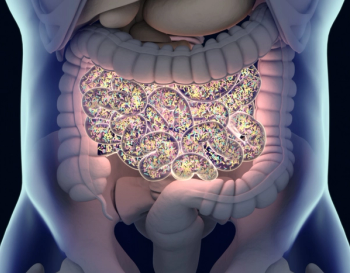
Study shows a statistically significant improvement in inflammatory syndrome after a fecal microbiota transplant in patients coinfected with COVID-19 and clostridioides difficile.

Investigators emphasize the importance of a timely HLH diagnosis and prompt initiation of treatment, as well as close outpatient follow-up to increase patient survival.
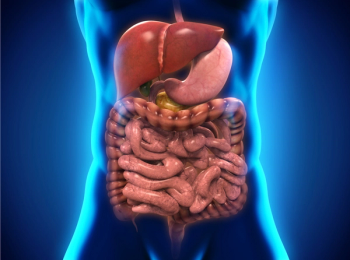
Clostridium Difficile Infection Associated With Higher Mortality Rates in Intestinal Transplant Recipients
An organ transplant is a known risk factor for C. difficile infection, however, data are lacking on how the infection affects those who underwent an intestinal transplant.

Molecular methods such as polymerase chain reaction show promise in monitoring the patient environment in hospitals and could help to provide reassurance prior to admission.

Clostridium difficile is a gram-positive, spore-forming, bacterium that is mainly caused by recent hospitalizations, advanced age, or antibiotic treatments.
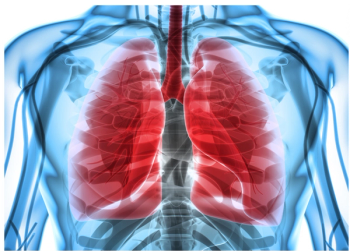
Patients with cystic fibrosis are typically administered antibiotics throughout their lives, which can increase the risk for C difficile infections.

FDA Approves First-in-Class Microbiota-Based Live Biotherapeutic for C. Difficile Infection
Live-jslm (Rebyota; Ferring Pharmaceuticals) is indicated for the prevention of recurring Clostridioides difficile infection among patients 18 years of age and older after an antibiotic treatment.

The relative abundance of gram-negative Bacteroidetes to other phyla, such as gram-positive Firmicutes, is essential to maintain biodiversity and human gut health.

Experts share advice for physicians taking care of patients with C. difficile infection (CDI).

Bincy Abraham, MD, MS; Thomas Lodise, PharmD, PhD; Teena Chopra, MD, MPH; and Paul Feuerstadt, MD, share unmet needs, including access to therapies, in treatment of C. difficile infection (CDI).

Experts discuss differences in designs of clinical trials of 4 emerging microbiota-based live biotherapeutics - RBX2660, SER-109, CP101, VE303, for treatment of rCDI.

A gastroenterologist, Dr. Bincy Abraham, provides an overview of C. difficile infection (CDI) in patients with inflammatory bowel disease (IBD).

Drs. Lodise and Feuerstadt discuss educational opportunities to combat and reduce C. difficile infection (CDI).

Dr. Chopra shares multipronged approach to reducing C. difficile infection (CDI) and the role of antimicrobial stewardship.


